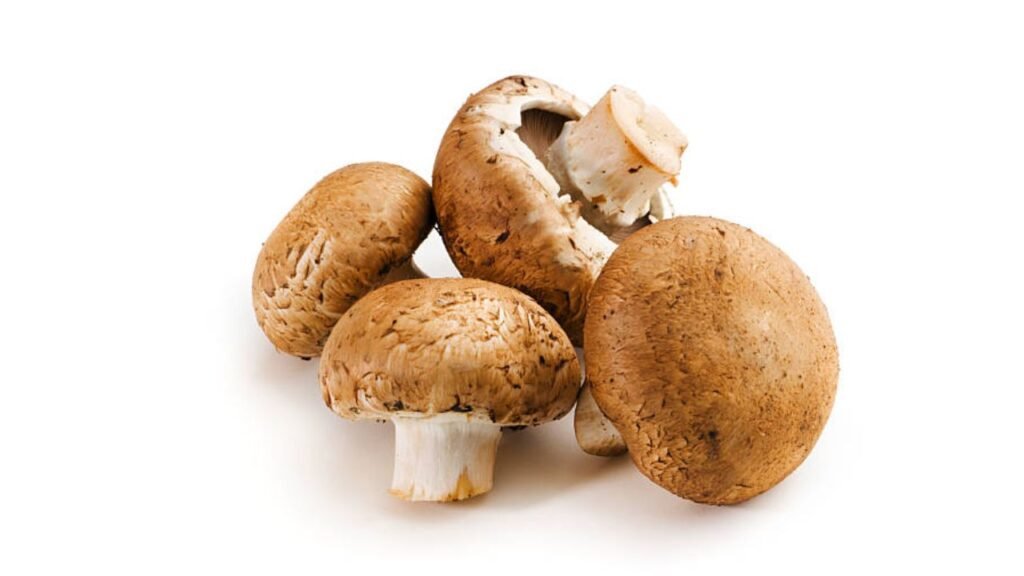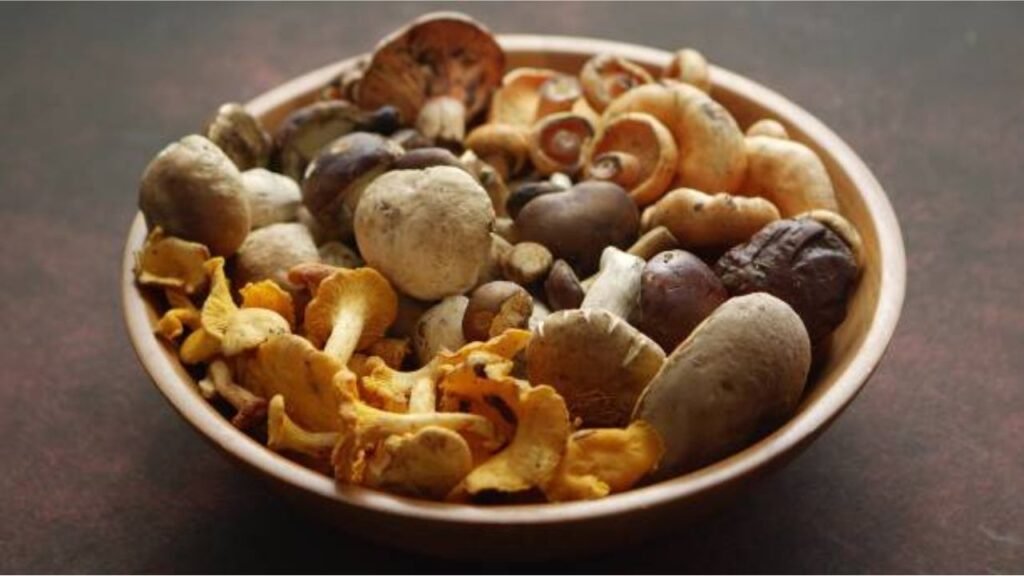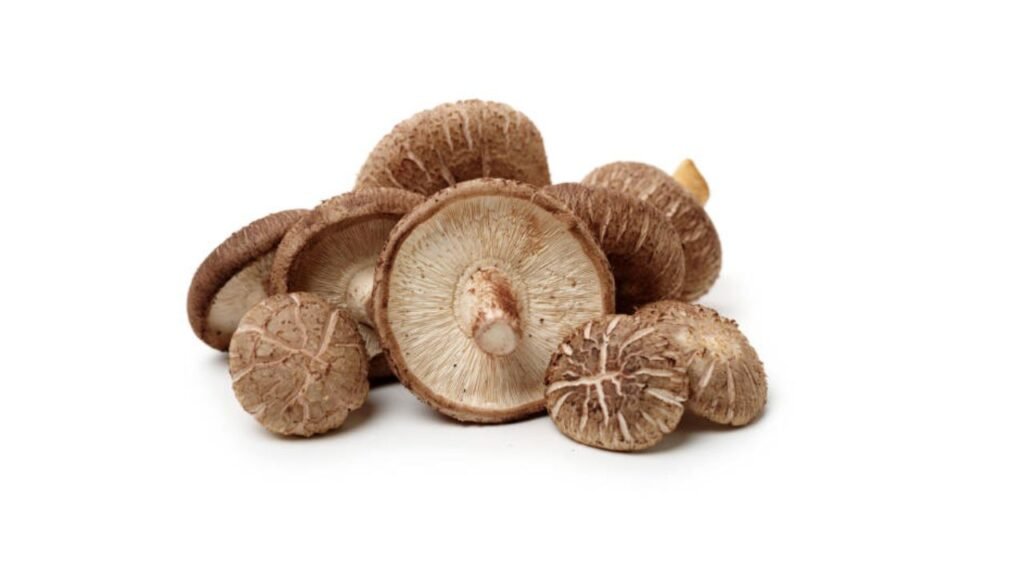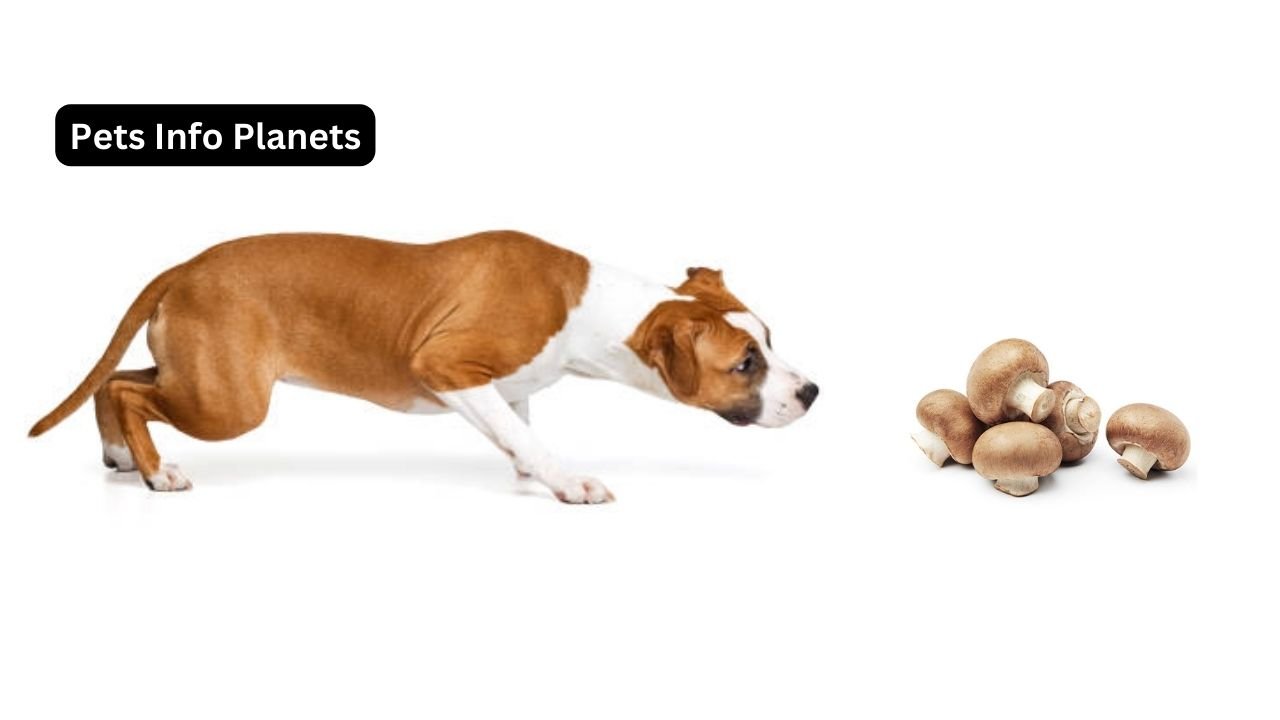“Can dogs eat mushrooms” This question often arises among dog owners who are concerned about their furry friends’ dietary choices. While mushrooms may seem like a healthy and natural food option, it’s important to understand that not all mushrooms are safe for canine consumption. In this guide, we will explore the topic of dogs and mushrooms, shedding light on which mushrooms are safe and which ones can pose potential health risks. Mushrooms, a diverse group of fungi, come in various shapes, sizes, and colors.
They are widely used in human cuisine and offer numerous health benefits for us. However, when it comes to dogs, the situation is different. While certain types of mushrooms are safe for dogs and can even provide nutritional value, others can be toxic and lead to severe health issues. To ensure the well-being of your canine companion, it’s crucial to be aware of the types of mushrooms that are safe for dogs to eat.
Can Dogs Eat Mushrooms

Yes, dogs can eat mushrooms, but you need to be careful. Some mushrooms are safe for dogs, but others can be harmful. It’s important to know which ones are okay for your furry friend. The best thing to do is talk to your veterinarian before giving mushrooms to your dog. They can tell you which types are safe and how to prepare them properly.
Some mushrooms can cause stomach upset, while others can be toxic and lead to more serious problems. To keep your dog safe, it’s important to avoid wild mushrooms, as it can be difficult to identify which ones are safe. Stick to commercially cultivated mushrooms if you decide to give them to your dog. Always prioritize your dog’s health and seek professional advice when it comes to their diet.
Are Mushrooms Good For Dogs
While some mushrooms are safe for dogs to consume, it’s important to approach the topic with caution. Certain types of mushrooms can indeed offer nutritional benefits to dogs, while others can be toxic and pose serious health risks. Therefore, it is essential to understand which mushrooms are safe and appropriate for canine consumption. Some varieties of mushrooms that are generally considered safe for dogs include white button mushrooms, cremini mushrooms, and shiitake mushrooms.
These mushrooms can provide dogs with essential nutrients like protein, vitamins B and D, and minerals such as potassium and selenium. However, it’s crucial to remember that moderation is key, as excessive consumption of any food, including mushrooms, can upset a dog’s digestive system.If you’re unsure about whether a specific mushroom is safe for your dog, it’s best to consult with a veterinarian. They can provide guidance based on your dog’s individual health needs and any potential risks associated with mushroom consumption.
Benefits Of Mushrooms For Dogs
Mushrooms can offer several potential benefits for dogs when consumed in safe and appropriate amounts. Here are some of the potential benefits of mushrooms for dogs:
Nutritional Value
Certain types of mushrooms, such as white button mushrooms, cremini mushrooms, and shiitake mushrooms, contain essential nutrients that can contribute to a dog’s overall health. These mushrooms are a good source of protein, vitamins (such as B vitamins), and minerals (like potassium and selenium), which are important for maintaining bodily functions and supporting a healthy immune system.
Antioxidant Properties
Some mushrooms contain natural antioxidants, such as ergothioneine and selenium, which can help combat the damaging effects of free radicals in a dog’s body. Antioxidants play a role in reducing oxidative stress and promoting cellular health.
Digestive Health
Certain mushroom varieties, like the reishi mushroom, may have prebiotic properties. Prebiotics can support the growth of beneficial gut bacteria, aiding in digestion and promoting a healthy gut flora balance in dogs.
Immune System Support
Mushrooms like maitake and turkey tail mushrooms have been studied for their potential to support the immune system. They contain compounds that may enhance the body’s natural defense mechanisms, helping to strengthen the immune system of dogs.
Anti-inflammatory Effects
Some mushrooms, including the lion’s mane mushroom, possess anti-inflammatory properties. These mushrooms may help to reduce inflammation in the body, potentially benefiting dogs with conditions such as arthritis or inflammatory bowel disease.
Can Dogs Eat Mushrooms Cooked

Yes, dogs can eat cooked mushrooms. Cooking mushrooms can make them easier for dogs to digest and can also help eliminate any potential harmful bacteria or parasites that may be present in raw mushrooms. However, it’s important to ensure that the mushrooms are cooked plain, without any added seasonings, spices, oils, or ingredients that may be toxic or harmful to dogs.
It’s crucial to feed mushrooms to dogs in moderation and monitor their response to ensure they tolerate them well. If you’re unsure about whether cooked mushrooms are suitable for your dog, it’s always best to consult with a veterinarian before introducing them into your dog’s diet.
How to Safely Feed Mushrooms to Dogs
Feeding mushrooms to dogs can be done safely if certain precautions are taken. Here are some guidelines to follow when feeding mushrooms to dogs:
Consult with a Veterinarian
Before introducing mushrooms to your dog’s diet, it’s important to consult with a veterinarian. They can provide specific guidance based on your dog’s individual health needs and any potential risks associated with mushroom consumption.
Choose Safe Mushroom Varieties
Stick to safe mushroom varieties that are known to be non-toxic for dogs, such as white button mushrooms, cremini mushrooms, or shiitake mushrooms. Avoid feeding wild mushrooms or those that you cannot positively identify.
Cook Thoroughly
It is recommended to cook mushrooms before feeding them to dogs. Cooking mushrooms can make them easier to digest for dogs and can help eliminate any potential harmful bacteria or parasites. Ensure that the mushrooms are plain and cooked without any seasonings, spices, oils, or ingredients that may be toxic to dogs.
Start Slowly
Introduce mushrooms gradually into your dog’s diet to observe their tolerance and any potential adverse reactions. Start with a small amount and monitor your dog for any signs of digestive upset or allergies. If your dog shows any negative symptoms, discontinue feeding mushrooms and consult with a veterinarian.
Moderation
While mushrooms can offer potential benefits, they should be fed in moderation. Too much of any food, including mushrooms, can upset a dog’s digestive system. Incorporate mushrooms as a small part of a balanced diet and ensure they do not become a primary food source.
Avoid Toxic Mushrooms
Be vigilant and prevent your dog from accessing wild mushrooms or unidentified mushrooms, as they can be toxic and pose serious health risks. Keep a close eye on your dog during walks or outdoor activities to prevent them from ingesting potentially harmful mushrooms.
Types Of Mushrooms

There are numerous types of mushrooms found in nature, each with its own unique characteristics, flavors, and uses. Here are a few common types of mushrooms:
White Button Mushrooms
These are one of the most widely consumed mushrooms worldwide. They have a mild flavor and a firm texture, making them versatile for use in various dishes, including salads, stir-fries, and soups.
Cremini Mushrooms
Also known as baby portobello mushrooms, cremini mushrooms have a deeper flavor and a slightly meaty texture compared to white button mushrooms. They are often used in recipes where a more robust mushroom flavor is desired.
Shiitake Mushrooms
Native to East Asia, shiitake mushrooms have a distinctive smoky and earthy flavor. They are commonly used in Asian cuisine and can be sautéed, stir-fried, or added to soups and stews.
Oyster Mushrooms
Oyster mushrooms have a delicate and slightly sweet flavor. They have a unique appearance, resembling oyster shells. Oyster mushrooms are often used in stir-fries, soups, and as a meat substitute in vegetarian dishes.
Morel Mushrooms
Morel mushrooms have a distinctive cone-shaped cap with a honeycomb-like texture. They have a rich, earthy flavor and are considered a delicacy. Morel mushrooms are often sautéed or used in gourmet recipes.
These are just a few examples of the many types of mushrooms available. It’s important to note that while some mushrooms are safe for human consumption, not all of them are safe for dogs.
What Kind Of Mushrooms Are Good For Dogs

Certain types of mushrooms are generally considered safe for dogs to consume in moderation. White button mushrooms are mild in flavor and widely available. They can be cooked and offered to dogs in small, well-cooked portions. Cremini mushrooms, also known as baby bella mushrooms, are slightly more flavorful than white button mushrooms.
They can be cooked and served to dogs in moderation. Shiitake mushrooms have a distinct smoky flavor and are commonly used in Asian cuisine. When cooked thoroughly, they can be safe for dogs to consume in small amounts. It’s important to note that while these mushrooms are generally safe, individual dogs may react differently.
Read More: Can Dogs Eat Carrots?
Conclusion
In conclusion, while certain types of mushrooms can be safe for dogs to eat, it’s important to exercise caution and moderation. White button mushrooms, cremini mushrooms, and cooked shiitake mushrooms are generally considered safe for dogs when served in small, well-cooked portions.
However, it’s crucial to consult with a veterinarian before introducing mushrooms into your dog’s diet. Additionally, it’s vital to avoid wild mushrooms or any mushrooms that cannot be positively identified, as they can be toxic and pose serious health risks to dogs. Always prioritize your dog’s well-being and seek professional advice when in doubt.

